第30章
The blacks never allowed their fires to go out, and whenever they moved their camping-ground, the women-folk always took with them their smouldering fire-sticks, with which they can kindle a blaze in a few minutes.Very rarely, indeed, did the women allow their fire-sticks to go out altogether, for this would entail a cruel and severe punishment.A fire-stick would keep alight in a smouldering state for days.All that the women did when they wanted to make it glow was to whirl it round in the air.The wives bore ill-usage with the most extraordinary equanimity, and never attempted to parry even the most savage blow.They would remain meek and motionless under a shower of brutal blows from a thick stick, and would then walk quietly away and treat their bleeding wounds with a kind of earth.No matter how cruelly the women might be treated by their husbands, they hated sympathy, so their women friends always left them alone.It often surprised me how quickly the blacks'
most terrible wounds healed; and yet they were only treated with a kind of clay and leaves of the wild rose.
I am here reminded of the native doctor.This functionary was called a RUI, and he effected most of his cures with a little shell, with which he rubbed assiduously upon the affected part.
Thus it will be seen that the medical treatment was a form of massage, the rubbing being done first in a downward direction and then crosswise.I must say, however, that the blacks were very rarely troubled with illness, their most frequent disorder being usually the result of excessive gorging when a particularly ample supply of food was forthcoming--say, after a big battue over a tribal preserve.
In an ordinary case of overfeeding, the medicine man would rub his patient's stomach with such vigour as often to draw blood.He would also give the sufferer a kind of grass to eat, and this herb, besides clearing the system, also acted as a most marvellous appetiser.The capacity of some of my blacks was almost beyond belief.One giant I have in my mind ate a whole kangaroo by himself.I saw him do it.Certainly it was not an excessively big animal, but, still, it was a meal large enough for three or four stalwart men.
In a case of fever the natives resorted to charms to drive away the evil spirit that was supposed to be troubling the patient.The universal superstition about all maladies is that they are caused by the "evil eye," directed against the sufferer by some enemy.
Should one member of a tribe be stricken down with a disease, his friends at once come to the conclusion that he has been "pointed at" by a member of another tribe who owed him a grudge; he has, in short, been bewitched, and an expedition is promptly organised to seek out and punish the individual in question and all his tribe.
From this it is obvious that war is of pretty frequent occurrence.
And not only so, but every death is likewise the signal for a tribal war.There is no verdict of "Death from natural causes."Punitive expeditions are not organised in the event of slight fevers or even serious illness--only when the patient dies.Atribe I once came across some miles inland were visited by a plague of what I now feel sure must have been smallpox.The disease, they said, had been brought down from the coast, and although numbers of the blacks died, war was not declared against any particular tribe.
As a rule, the body of the dead brave is placed upon a platform erected in the forks of trees, and his weapons neatly arranged below.Then, as decay set in, and the body began to crumble away, the friends and chiefs would come and observe certain mystic signs, which were supposed to give information as to what tribe or individual had caused the death of the deceased.